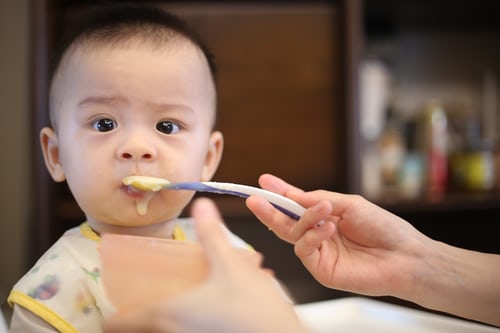In April 2020, MPs on the Environment, Food and Rural Affairs Committee launched an enquiry into Covid-19 and food supply. This report has been made public, and whilst there are examples of resilience, the pandemic has laid bare existing inequalities in our society when it comes to that most basic of needs – to eat.
This Spring, food shortages caused by a combination of panic buying and a genuine lack of clarity about how much food should be bought, affected the most vulnerable most seriously. Whilst many retailers worked collaboratively to co-ordinate delivery vans, and prioritise the elderly, those shielding found themselves largely reliant on friends, family and the charity sector.
Food became increasingly unaffordable for many. The Trussell Trust (which operates Food Banks) reports “an 81% increase in demand and […] a 122% increase in the number of children receiving food” compared with the same period last year. What the report does not mention however is the fact that in that last year period, they were already reporting a 23% increase in usage of food banks on the previous year (2018). According to Oxfam, even before Covid-19, some 500,000 people in the UK were already reliant on food banks, and that 1 in 6 parents experienced going without food in order to feed their children.
About 1.3 million children in the UK qualified for free school meals at the start of March, and the government designed a substitute system to enable children to access free meals. However, the government failed to recognize that low income families are often dependent on convenience stores and discount retailers (supermarkets usually require transport, which is an additional cost), which weren’t initially included in the scheme, leading to much hardship.
Ironically, whilst supermarkets experienced supply issues, many food producers couldn’t sell their products, as hospitality shut down. British Dairy farmers alone lost over £41 million, a sector already operating on the edge.
This government report recommends that access to affordable healthy food be prioritised, the resilience of producers be supported, that surplus food be redistributed socially and that just-in-time supply chains be re-thought to provide greater food security in the face of potential risks of climate change and Brexit.
The purpose of this report was not to consider the implications of increasing societal reliance on food banks. However, it evidences growing dependency by a significant percentage of the population. With 1 in 50 UK households (and now probably many more) dependent on food parcels to feed themselves, food poverty is endemic in the UK.
Food collections in schools, churches and supermarkets are now so normal we don’t think twice about them. At what point did food banks become institutionalized? The report recommends that FareShare be given £5 Million in annual funding to re-distribute food to those who can’t afford to feed themselves.
But doesn’t this feel like a sticking plaster policy? We all understand that when we sponsor a child in Cambodia to go to school we’re creating a future for them, and that when we buy a village a well in Africa we’re supporting long term good health for a community. Why therefore are we ignoring underlying causality in our domestic policy?
The two underpinning reasons for reliance on food banks are a benefits system which needs careful reconsideration and low paid, insecure employment. So, where as individuals we shake our head at the sadness of 4.2 million children living in poverty (that’s 30% of our children by the way), we must understand how to take action to change this situation.
Businesses evaluating their social impact activities relating to food poverty should consider the following actions:
1. Contribute to tackling the immediate problem by supporting your local food bank, or better still, supporting a community kitchen where people can access hot, fresh, healthy meals rather than rely on donated ultra-processed packaged products.
2. Importantly, look at your recruitment policies, and consider how inclusionary your HR systems are. Commit to being a Living Wage Employer, provide contracts with stability, consider a staff hardship loan scheme and flexible working practices for parents with young children and limited childcare support. These are all identified Social Impact Measures through the TOMs and can be recorded as such.
Acting in this way will only improve your reputation as a business, make you a company people want to work for, and embed you into your communities. And at the same time, we all start to tackle institutionalized behaviours which are leading to 2 million people in this country going hungry every day.




